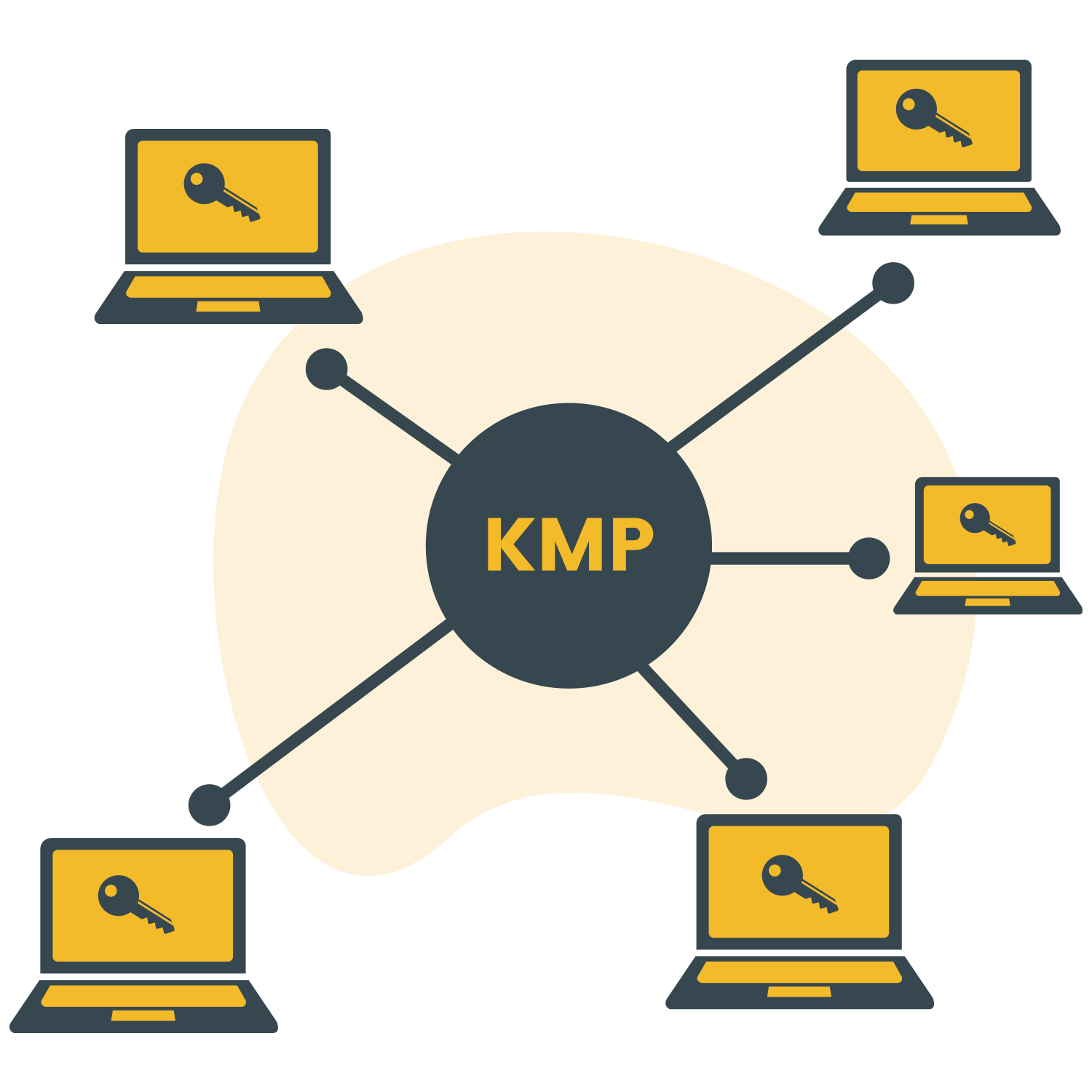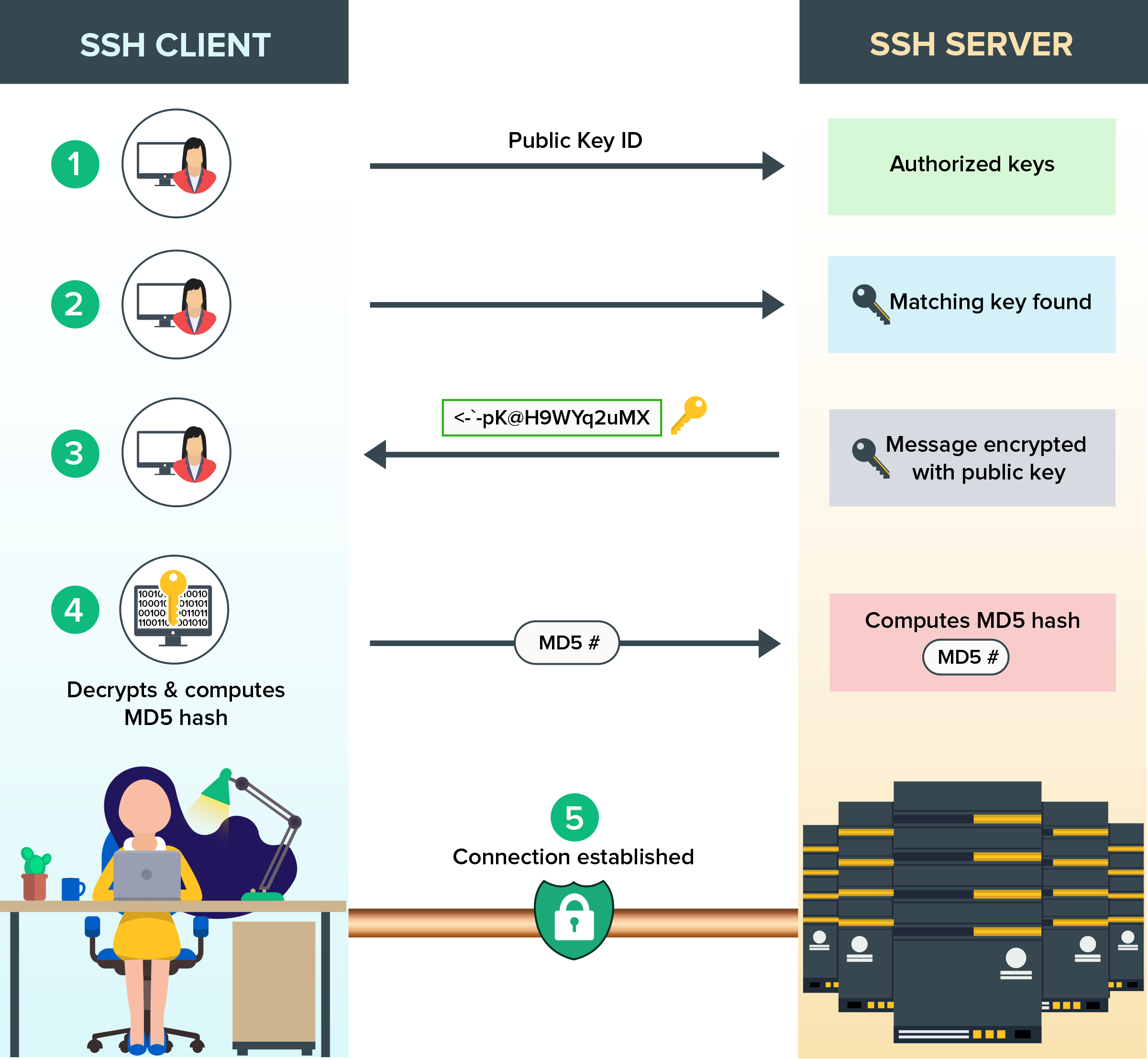In the modern digital era, the importance of efficiently managing SSH keys cannot be overstated when it comes to securing remote access to devices and servers. As remote work continues to grow in popularity and the Internet of Things (IoT) expands, ensuring robust SSH key management has become more critical than ever. RemoteIoT emerges as a groundbreaking solution designed to simplify the complexities of SSH key management. By offering a secure, user-friendly platform, RemoteIoT ensures that your infrastructure remains protected while granting seamless access to authorized users. This article delves into best practices for SSH key management and explains how RemoteIoT can empower you to achieve a secure and streamlined workflow.
Secure Shell (SSH) is a protocol enabling secure access to remote systems, with SSH keys serving as the credentials that authenticate users without the need for passwords. While SSH keys provide enhanced security compared to traditional password-based methods, managing them in large-scale environments can become intricate. Poor management can expose vulnerabilities, leading to unauthorized access and potential data breaches. RemoteIoT addresses these challenges by delivering a comprehensive SSH key management solution that combines ease of use with top-tier security.
As we progress through this article, we will examine the significance of SSH key management, explore the capabilities of RemoteIoT, and provide actionable tips for implementing best practices. Whether you're an IT professional overseeing a network of IoT devices or a business leader aiming to bolster cybersecurity, this guide equips you with the knowledge and tools necessary to thrive.
Read also:Zeeko Zaki A Rising Star In Hollywoods Firmament
Table of Contents
- Introduction to SSH Key Management
- Why SSH Key Management Matters
- Key Features of RemoteIoT
- Best Practices for SSH Key Management
- How RemoteIoT Simplifies SSH Key Management
- Advanced Security Features
- Integrating RemoteIoT with Your Workflow
- Case Studies and Success Stories
- Common Challenges and Solutions
- Conclusion and Next Steps
Understanding SSH Key Management
SSH key management involves the creation, storage, and control of access to SSH keys, which are essential for secure authentication in remote environments. SSH keys consist of a public and private pair, offering a more secure alternative to traditional password-based authentication. Properly implemented, SSH keys can drastically reduce the risks of unauthorized access and cyberattacks, ensuring the integrity and confidentiality of your systems.
However, managing SSH keys becomes increasingly complex as organizations grow, especially in environments with numerous users and devices. Without a centralized system, organizations may encounter challenges such as uncontrolled key proliferation, unauthorized access, and difficulties in revoking access when necessary. Adopting a robust SSH key management solution like RemoteIoT can streamline processes and significantly enhance security.
Why SSH Keys Are Essential for Secure Remote Access
SSH keys are indispensable for secure remote access as they offer a reliable method of authentication that does not rely on passwords. Passwords are vulnerable to guessing and brute-force attacks, whereas SSH keys use advanced cryptographic algorithms to ensure that only authorized users gain access to the system. Consequently, SSH keys play a pivotal role in any secure remote access strategy.
The Importance of Effective SSH Key Management
Proper SSH key management is vital for maintaining both the security and operational efficiency of your IT infrastructure. When improperly managed, SSH keys can become liabilities, exposing your systems to unauthorized access and potential data breaches. This section explores why SSH key management is crucial and the risks associated with subpar practices.
A significant risk of poor SSH key management is "key sprawl," where SSH keys are dispersed across multiple systems without a centralized oversight mechanism. This complicates tracking and controlling access, thereby increasing the likelihood of unauthorized intrusions. Furthermore, failing to revoke SSH keys when employees leave or change roles can create security loopholes.
Consequences of Neglecting SSH Key Management
Poor SSH key management can have severe repercussions for your organization. For instance, if an attacker gains possession of a private SSH key, they can exploit it to access sensitive systems and confidential data. Such breaches can result in financial losses, reputational damage, and legal liabilities. Additionally, inadequate SSH key management may lead to non-compliance with industry regulations concerning access control and data protection.
Read also:Cheryl Cole The Journey Of A Global Pop And Fashion Icon
Core Features of RemoteIoT
RemoteIoT stands out as a premier platform for SSH key management, offering a suite of features designed to make secure and efficient SSH key management accessible. Below, we explore the key features of RemoteIoT and how they can benefit your organization.
A standout feature of RemoteIoT is its centralized dashboard, which provides a holistic view of all SSH keys within your environment. This enables you to monitor and manage access effectively, ensuring that only authorized individuals gain access to your systems. Moreover, RemoteIoT supports automated key rotation, reducing the risk of key compromise by regularly updating SSH keys.
Enhanced Security with Advanced Features
RemoteIoT also includes advanced security features such as multi-factor authentication (MFA) and role-based access control (RBAC). MFA adds an extra layer of security by requiring users to provide additional verification, such as a one-time code, in addition to their SSH key. RBAC allows you to establish precise access policies, ensuring that users only have access to the systems and data necessary for their roles.
Best Practices for Managing SSH Keys
To ensure the security and efficiency of your SSH key management, adhering to best practices is essential. This section outlines some of these best practices and provides guidance on implementing them within your organization.
A foundational best practice is to utilize a centralized management system like RemoteIoT to track and control SSH key access. This prevents key sprawl and provides a clear overview of system access. Additionally, regularly rotating SSH keys is crucial to minimize the risk of key compromise. Features like RemoteIoT’s automated key rotation can facilitate this process.
Implementing Role-Based Access Control
Another critical best practice involves implementing role-based access control (RBAC) to ensure users only gain access to systems and data pertinent to their roles. This mitigates the risk of unauthorized access and ensures that users cannot inadvertently or deliberately access sensitive information. RemoteIoT simplifies RBAC implementation by allowing you to define granular access policies tailored to user roles and responsibilities.
How RemoteIoT Streamlines SSH Key Management
RemoteIoT simplifies SSH key management by offering a user-friendly platform that centralizes and automates the entire process. This section examines how RemoteIoT can help you optimize your SSH key management workflow while enhancing security.
A major advantage of RemoteIoT is its centralized dashboard, which provides a comprehensive overview of all SSH keys in your environment. This facilitates easy monitoring and management of access, ensuring that only authorized users gain access to your systems. Furthermore, RemoteIoT's automated key rotation feature reduces the risk of key compromise by periodically updating SSH keys.
Enhancing Security with Multi-Factor Authentication
RemoteIoT incorporates multi-factor authentication (MFA) to add an additional layer of security to your SSH key management process. MFA requires users to provide extra verification, such as a one-time code, in addition to their SSH key, preventing unauthorized access even if an attacker acquires a private SSH key. By implementing MFA, you can significantly strengthen the security of your SSH key management process.
Advanced Security Features of RemoteIoT
Beyond its core SSH key management capabilities, RemoteIoT offers a range of advanced security features that further fortify your IT infrastructure. This section highlights some of these advanced features and explains how they can benefit your organization.
One of RemoteIoT's advanced security features is role-based access control (RBAC), which enables you to define detailed access policies based on user roles and responsibilities. This ensures that users only have access to the systems and data required for their job functions, reducing the risk of unauthorized access. Additionally, RemoteIoT provides automated compliance reporting, assisting you in meeting regulatory requirements and demonstrating adherence to industry standards.
Automated Compliance Reporting for Enhanced Security
Automated compliance reporting is invaluable for organizations needing to meet stringent regulatory requirements. RemoteIoT's compliance reporting feature automatically generates reports detailing access control policies, SSH key usage, and other security-related information. This aids in demonstrating compliance with industry standards and regulations, such as GDPR and HIPAA, ensuring your organization remains compliant with regulatory bodies.
Integrating RemoteIoT Into Your Workflow
Incorporating RemoteIoT into your existing workflow is a straightforward process that can considerably enhance the security and efficiency of your SSH key management. This section explains how you can integrate RemoteIoT into your workflow and the benefits of doing so.
A significant benefit of integrating RemoteIoT into your workflow is the ability to centralize and automate SSH key management. Using RemoteIoT's centralized dashboard, you can easily monitor and manage system access, ensuring that only authorized users gain access. Additionally, RemoteIoT's automated key rotation feature reduces the risk of key compromise by regularly updating SSH keys, keeping your infrastructure secure.
Streamlining Access Control Through API Integration
RemoteIoT also supports API integration, enabling seamless SSH key management integration with your existing tools and systems. This streamlines your workflow and ensures that SSH key management is fully integrated into your IT operations. By leveraging RemoteIoT's API, you can automate key management tasks, such as key creation and revocation, ensuring an efficient and secure SSH key management process.
Real-World Success with RemoteIoT
To highlight the benefits of RemoteIoT's SSH key management solution, let's examine some case studies and success stories from organizations that have successfully implemented the platform.
Consider a large financial institution that faced challenges with key sprawl and unauthorized access due to inadequate SSH key management practices. By adopting RemoteIoT, the organization centralized and automated its SSH key management process, reducing the risk of unauthorized access and enhancing overall security. The organization also leveraged RemoteIoT's automated compliance reporting feature to demonstrate compliance with industry regulations.
Success Story: Strengthening Security in Healthcare
A success story from the healthcare sector involves a hospital struggling to manage SSH keys for its IoT devices. By implementing RemoteIoT, the hospital streamlined its SSH key management process, ensuring that only authorized personnel gained access to sensitive medical devices. This not only improved security but also enhanced the efficiency of the hospital's IT operations, enabling staff to focus more on patient care rather than key management.
Addressing Common Challenges in SSH Key Management
Although SSH key management is critical for maintaining security, it can present several challenges. This section discusses some common challenges and the solutions RemoteIoT provides.
A prevalent challenge is key sprawl, where SSH keys are spread across multiple systems and devices without centralized oversight. This complicates tracking and controlling access, increasing the risk of unauthorized access. RemoteIoT addresses this by providing a centralized dashboard that allows you to easily monitor and manage access to your systems.
Overcoming the Challenge of Key Rotation
Another common challenge is key rotation, which involves regularly updating SSH keys to reduce the risk of key compromise. Manual key rotation can be time-consuming and prone to errors, leading to potential security vulnerabilities. RemoteIoT resolves this by offering automated key rotation, ensuring SSH keys are regularly updated without manual intervention. This enhances security and simplifies the key management process.
Conclusion and Future Steps
In conclusion, effective SSH key management is indispensable for maintaining the security and efficiency of your IT infrastructure. By adopting a robust SSH key management solution like RemoteIoT, you can centralize and automate the process, minimizing the risk of unauthorized access and enhancing security. Additionally, RemoteIoT offers advanced security features such as multi-factor authentication, role-based access control, and automated compliance reporting, empowering you to safeguard your systems effectively. Explore RemoteIoT today to take the next step in securing your digital environment.

